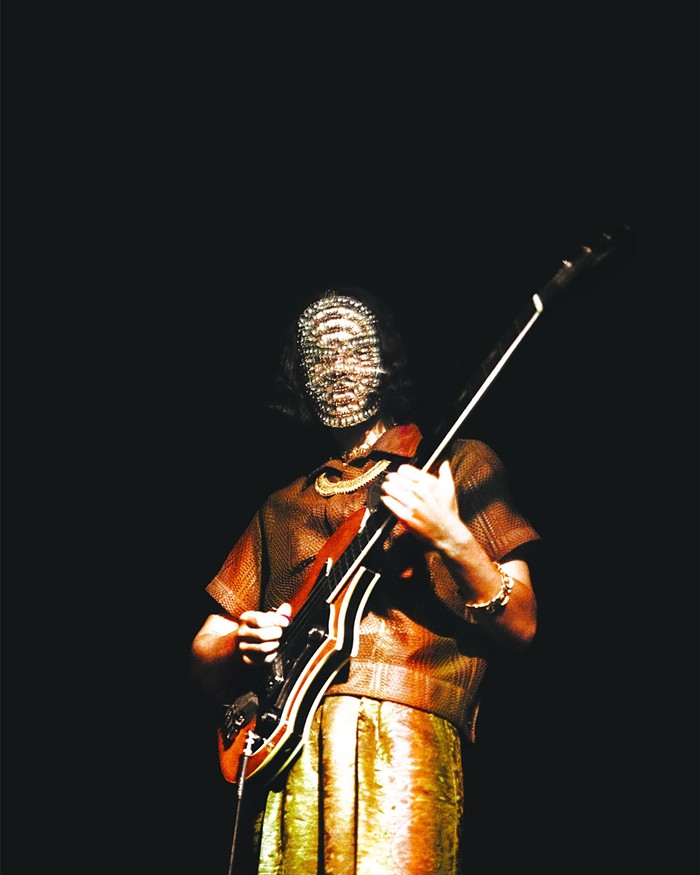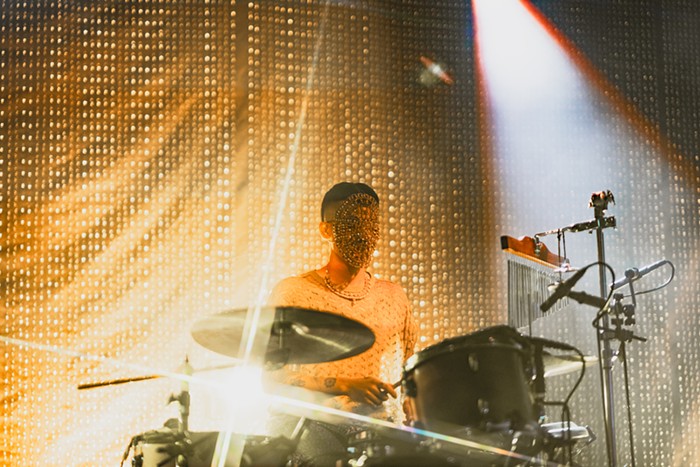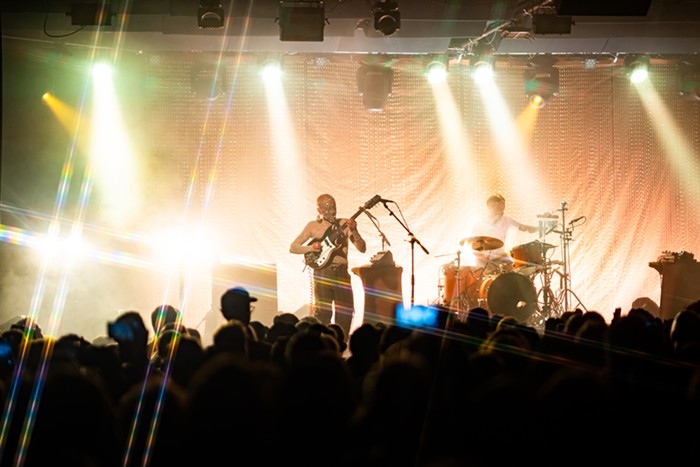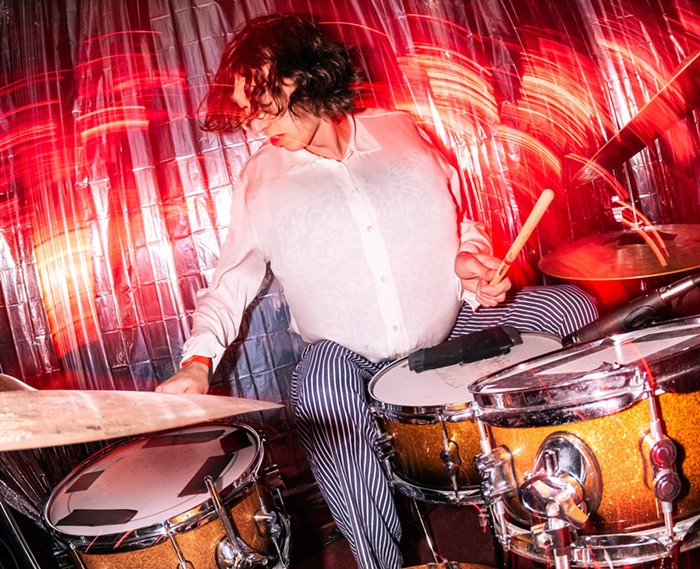Yesterday was one of those May days in Seattle where the miserable weather sabotages your morale and makes you wonder what the hell happened to spring. We needed something to dissolve our persistent-precipitation blues, and Glass Beams got the job done.
Three androgynous figures wearing gold, bejeweled masks, Australia's Glass Beams sauntered to their positions onstage to wild applause from the sold-out Crocodile crowd and got down to business. Their standard rock-trio setup is augmented by two compact, sparingly deployed synthesizers. The latter instruments added crucial secret spices to the group's seductive instrumentals. Glass Beams occasionally sprinkle chants atop the music to intensify the flavors and mystery.

Speaking of mystery, only founding member/bassist Rajan Silva's name has been publicized and their lone interview occurred in Rolling Stone India. Somehow, with no media blitz, they've accrued 791k Instagram followers. The band said nary a word to the audience throughout the hourlong set. They didn't need to; the music was more than enough to inspire devotion.
Glass Beams' sound at this early stage of their career (they've only released two EPs) has a rather narrow range. But what they do within that range is special. At their core, they are precise minimalists, their songs elegantly bending Eastward via myriad Asian scales and spaghetti Western-echoing riffs. Most of their tracks are effortlessly psychedelic and casually funky, with falsetto "huh"s and "oh"s capping an approach that's more about mesmerizing listeners than overwhelming them. Draping a holy aura over typically libidinous genres, Glass Beams' funky psychedelia never loses its composure, even as it's causing audiences to lose theirs. The golden-honey color scheme of their accouterments, stage backdrops, and record covers filters into their songs.

During their encore, Glass Beams bust out a version of Charanjit Singh's "Raga Bhairav," from the genius Indian producer's cult classic Synthesizing: Ten Ragas to a Disco Beat. With its swift, metronomic beats and snarling synth accents, the song proved that Glass Beams easily could transition into a techno unit and wow the club circuit, if they set their minds to it. But for now, these mysterious Aussies seem content with conquering psych-rock heads' hearts and minds, and they're on track to becoming festival mainstays. Don't be surprised to see their name in big font atop next year's THING or Bumbershoot flyer.

Opening act Arushi Jain didn't fare as well with the crowd, from what I could glean from my vantage point near the stage and judging by the loud chatter emanating from the back of the room. She drew heavily from her latest album, Delight, one of the year's best. A few seconds into her first tune, somebody exhaled a huge plume of smoke skyward as Jain manipulated an angelic motif on her modular synth, whose tangle of patch cables gave me a migraine just looking at it. The music was a paragon of exploratory and tranquil ambient, evoking chillout tents at '90s raves.
It's almost unfair that Jain can sing so beautifully and emotively while also creating music of such sublime radiance. However, her bass frequencies appeared to be too much for the Crocodile's system, distorting into muddiness. Delicate high frequencies got obscured by the murky low end.
Jain's set peaked when her wraith-like vocals rippled in psychedelic recursiveness over artfully disjointed beats. There were a couple of shocking detours into Meat Beat Manifesto-esque industrial chaos, which was appreciated. But Jain's forte remains ambient music of devotional allure and textural nuance. Unfortunately, her set didn't shine as brightly as it did when Jain opened for Suzanne Ciani at Seattle First Baptist Church last year.
After Jain finished her performance, a guy behind me said, "It'll be nice to hear something rhythmic." Don't ever be that guy.





















